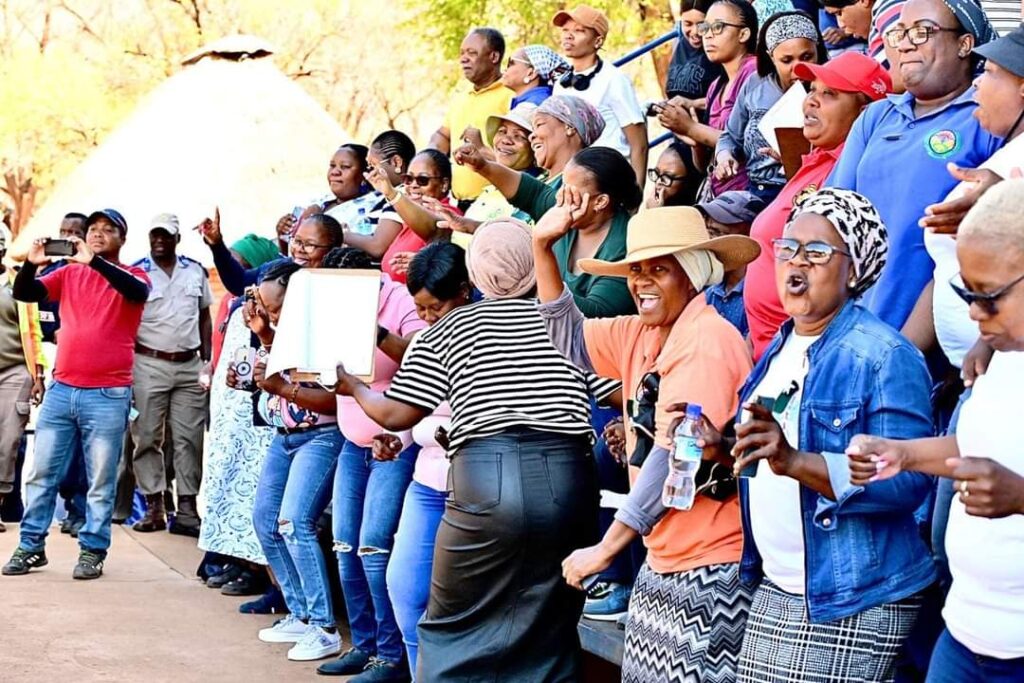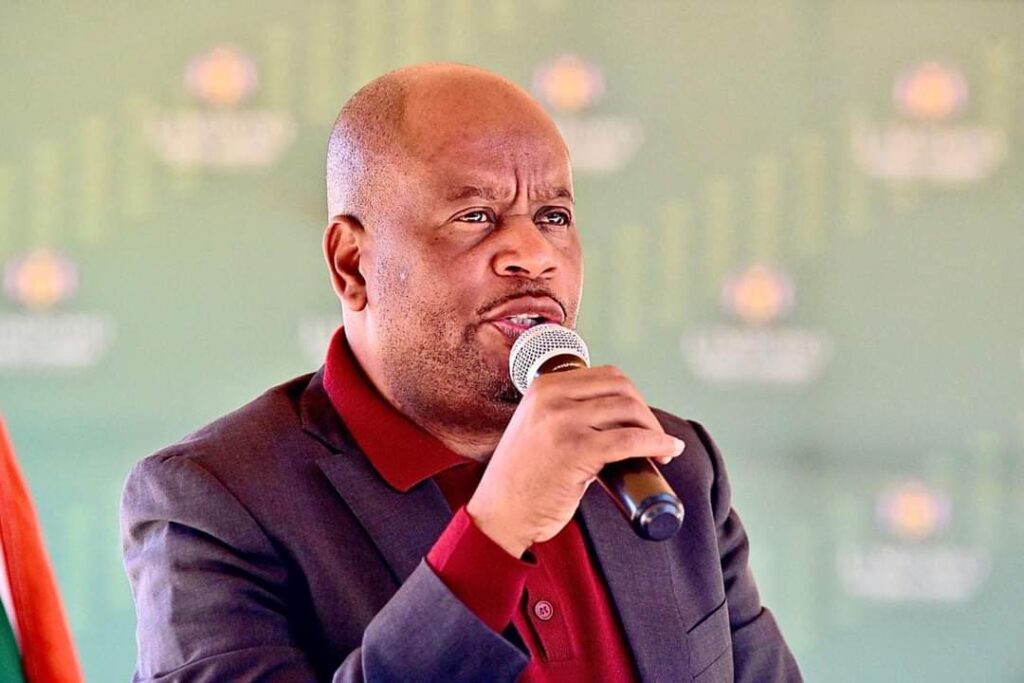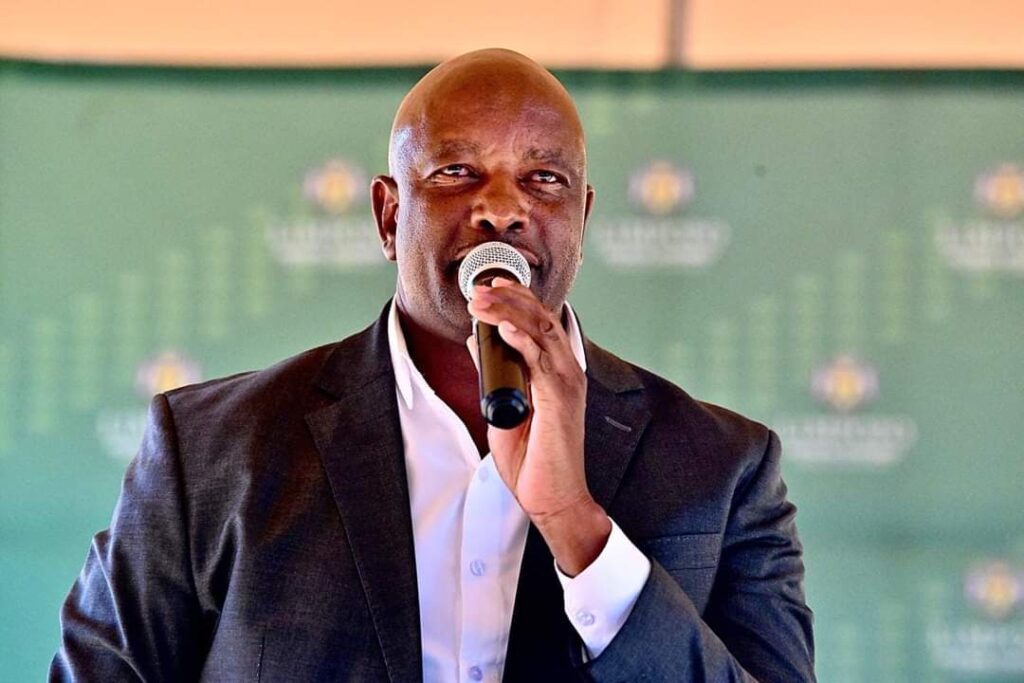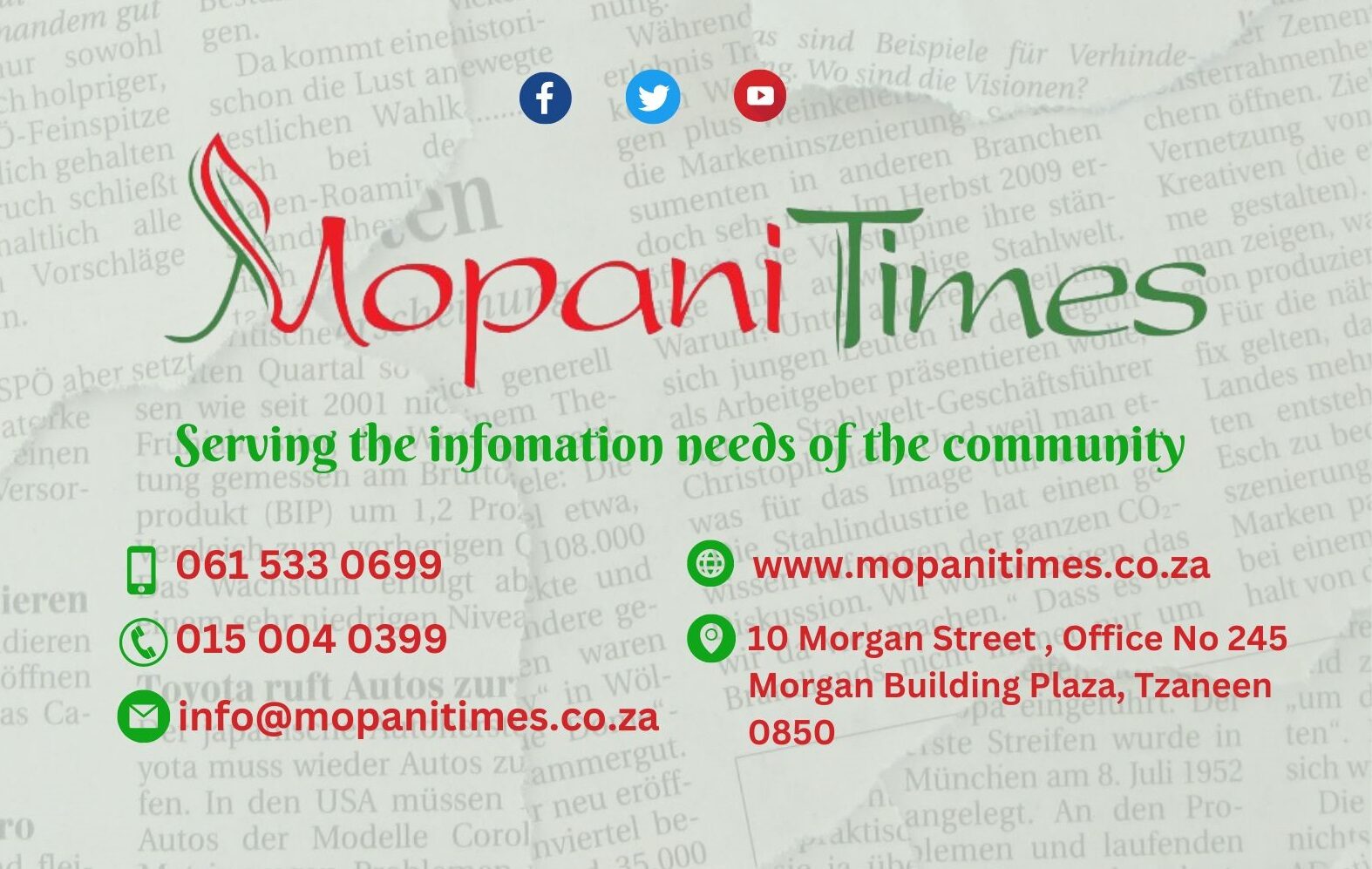
Community members and other stakeholders celebrate following intervention by the provincial government.
In a landmark visit to Thabazimbi on October 4, 2024, Limpopo Premier Dr. Phophi Ramathuba led a delegation of the Limpopo Executive Council, signifying the start of a comprehensive intervention aimed at restoring order and functionality to the long-troubled municipality.
This visit followed the decisive backing of the National Council of Provinces, which on October 3, 2024, approved the provincial government’s proposal to assume administrative control over the municipality under Section 139 (1) (c) of the Constitution.
Initially marred by ongoing management challenges since 2021, Thabazimbi Municipality had become a focal point of governance frustrations, necessitating bold actions by the provincial leadership. During the visit, Dr. Ramathuba emphasised the importance of this intervention, expressing her satisfaction with the support from national bodies: “We are happy to have received such enormous support on this matter, cementing our belief that we cannot allow our people to be held at ransom by people they have elected.”
With a commitment to transparency and community engagement, the Premier and her council engaged with municipal leaders, labour representatives, and community stakeholders to outline the planned course of action. These engagements highlighted the province’s commitment to reshaping local governance to prioritise effective service delivery and leadership accountability.
A comprehensive plan was unveiled, detailing the strategic steps forward. As part of these measures, an administrator will be appointed to oversee the day-to-day operations of the municipality. This administrator will be supported by a team of experts from various disciplines, including water, sanitation, electricity, and financial management. This multidisciplinary approach aims to address core infrastructural and financial deficiencies currently plaguing the municipality.
Additionally, the Independent Electoral Commission (IEC) has been tasked with declaring vacancies and organizing new elections. This move is designed to pave the way for the establishment of a freshly constituted municipal council that reflects the democratic will and renewed aspirations of the Thabazimbi populace. Following these elections, human resource management within the municipality will also be overhauled to ensure that all personnel align with the new governance and service delivery goals.
The Premier reiterated her expectations for a transformation in local leadership and governance, firmly stating, “Dilo ditshentshitse, things have indeed changed.” Her remarks encapsulate the resolve of the provincial government to steer the municipality into an era defined by accountability, efficiency, and development.
In addition to these political and administrative reforms, the Premier and the Executive Council toured several key infrastructure projects during their visit. These site inspections provided opportunities to assess current projects and explore avenues for future development, all strategically aligned with enhancing the region’s socio-economic growth.
Through these decisive actions, the provincial government is not only addressing the dysfunction that has long beset Thabazimbi but also building a foundation for sustainable, community-driven governance. The visit marks a pivotal moment in the municipality’s history, heralding a new dawn under the stewardship of the Limpopo provincial administration. As these changes unfold, the commitment to transparency, community involvement, and strategic planning remains at the forefront of efforts to ensure stability and growth in Thabazimbi.
During the pivotal visit to Thabazimbi Municipality, Limpopo Premier Dr. Phophi Ramathuba was supported by a robust team of key provincial leaders. Accompanying her were notable members of the Executive Council, including MECs Basikopo Makamu of Cooperative Governance, Human Settlements and Traditional Affairs (COGHSTA), Tonnie Rachuene of Public Works, Roads and Infrastructure, Nakedi Sibanda-Kekana of Agriculture, and Dieketseng Mashego of Health. Joining them was the Executive Mayor of Waterberg, Jack Maeko.
This distinguished group underscored the unified approach taken by the provincial leadership to address the long-standing challenges afflicting Thabazimbi. Their presence highlighted the multi-faceted focus of the intervention, which spans critical areas such as governance restructuring, infrastructure development, agricultural advancement, and public health improvements.
MEC Basikopo Makamu played a pivotal role in communicating the operational and governance overhaul as guided by COGHSTA’s principles, ensuring that the municipality’s administration aligns with effective traditional and tribal governance standards. MEC Tonnie Rachuene’s expertise was vital in assessing the current state of infrastructure, identifying both immediate repair needs and long-term development opportunities within the municipality’s roads and public facilities.
MEC Nakedi Sibanda-Kekana provided insights into opportunities for boosting agricultural productivity, strengthening food security, and promoting sustainable farming practices. Her involvement is crucial in supporting Thabazimbi’s local economy and ensuring food systems are resilient and thriving.
Health MEC Dieketseng Mashego emphasized the importance of supporting healthcare infrastructure to meet the needs of Thabazimbi’s residents. Her guidance aims to ensure access to quality healthcare services, which is vital for improving community health outcomes and combating any healthcare disparities within the region.
Additionally, Executive Mayor Jack Maeko’s participation reflected a strong regional solidarity and the importance of collaborative efforts between municipal and district leadership. His involvement emphasized the collective resolve to drive innovative solutions and ensure resource allocation meets community demands.
Together, this distinguished cohort not only reinforced the provincial government’s commitments but also symbolised an integrated approach aimed at transforming Thabazimbi into a model of efficient, accountable, and community-focused governance. Their collective expertise and authority will drive the envisioned reforms, with efforts to rebuild trust, stimulate economic development, and enhance service delivery, ensuring that the needs and welfare of the residents remain at the forefront.

Premier Dr. Phophi Ramathuba engages stakeholders.

MEC Basikopo Makamu during Premier Dr. Phophi Ramathuba’s engagement with stakeholders.

Waterberg District Executive Mayor Jack Maeko.

Community members and other stakeholders support the intervention.
